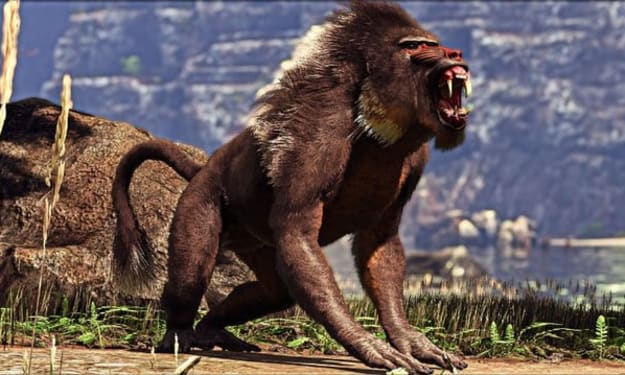
20,000 units.
He squinted at the number, rubbed his temple, and re-read the directions.
This Challenge is simple: write a short creative fiction piece, no longer than 2,000 words, about a post-apocalyptic dystopia.
He didn’t know whether to sigh or laugh. “Simple,” the prompt promised. True enough, he supposed. If you sought 20,000 units in his society - and, of course, the 99% of citizens who had the misfortunate of having not been born into a historically successful clan yearned deeply for such a sum - you would find few opportunities as enticing as a quick foray into fiction. A handful of keystrokes to collect a life-changing amount of currency? Well, that certainly seemed like a more efficient alternative than continuing to toil away the rest of his days in Unit 925, clinging on to a meager allowance while clipping coupons to afford adequate food and siphoning his salary every thirty solar revolutions to ensure that his housing was not snatched away. Plus, as Challenges went, it was far from the worst. Better odds, he thought darkly, than the leagues of aspiring artists and athletes who gambled comfort, privacy, and dignity for the chance to have their faces plastered on skylines and their bodies recline comfortably during cross-world aerial excursions.
Simple.
All he had to do was imagine a “post-apocalyptic dystopia.”
He felt a lethargic chuckle leave his lips. A dystopia? Wasn’t everything around him dystopian enough? Wasn’t the modern era itself an apocalpyse?
He thought of his planet. Its temperatures were rapidly increasing. All of the top scientests who had once assessed this climatory change with alarm now spoke with sheer panic. Two cities had already been declared inhospitable for his kind, and in less than a century - certainly, he lamented, within his lifetime - hundreds more were destined for the same fate, or to be submerged in water from melting ice caps, or overrun by refugees from elsewhere.
He thought of his nation. A land of incessant propaganda and cognitive dissonance, founded on genocide and enslavement. The country had contorted the word ‘freedom’ until it was void of any true meaning. It declared that all of its citizens were created equal and yet every facet of its economic and social normalcy was built on the dehumanization and marginalization of all beings who had a darker pigmentation. It applauded itself as the greatest land far and wide, yet demonically demanded payment for food, for water, for shelter, for medicine, for comfort, for distraction, for the pursuit of happiness, and even for the act of payment itself.
He thought of his home. He was one of the lucky ones, he knew. His parents, who had immigrated from a land many of his childhood friends had jeeringly renamed as ‘Anthrax-ville’, had been relatively successful in their assimilation. They had provided him with a bed to sleep in. They had made sure he knew how to read and write and think for himself. Yet they had been deeply conditioned into believing that hard work was all that was needed to secure safety and success. He had believed that old tale too, for a while. It wasn’t until he reached adulthood that he realized the extent to which he, like his parents before him, was truly an outsider. As long as he supplied labor and paid his taxes, his existence was tolerable. But the land was not for him.
20,000 units.
It was a lot of money. Enough to help a dying woman finally afford the medical supplies she required. Enough for a family of four to breathe freely for a few months without worrying about being kicked out of their residence by a multimillionaire property owner. Enough for a lifelong dreamer to finally liberate himself from an enervating daily routine peppered with painfully droll discussions and intermittent panic attacks.
It was also no money at all. The cost of a sumptuous scarlet handbag slung on the shoulder of an affluent debutante. The amount that an abnormally chiseled man was ordered to pay after criticizing the referees following a popular sporting event. The price of a particularly ancient bottle of wine.
He squeezed his eyes shut but still saw the words in front of him.
20,000 units. Simple. Dystopian.
For the first time, he spoke out loud, breaking the room’s reticine.
“No.”
Even with no audience, it felt like the right word to say. So he repeated it.
“No. No, no, no.”
He felt himself shaking but didn’t have enough energy left to care. His face was suddenly wet. The wooden heart-shaped locket draped across his neck cascaded uncomfortably against his chest.
“No!” he shouted into emptiness. Outside, the sidewalk sizzled.
He steadied his breath, and wiped the freshly-formed tears from his eyes. His head was pounding, but it was a familiar sensation. His heart hurt, but he was used to that too. A distant buzzing reverberated in his ears.
“No,” he whispered softly.
Then he opened his notebook and started writing a story about utopia.
About the Creator
Enjoyed the story? Support the Creator.
Subscribe for free to receive all their stories in your feed. You could also pledge your support or give them a one-off tip, letting them know you appreciate their work.





Comments
There are no comments for this story
Be the first to respond and start the conversation.